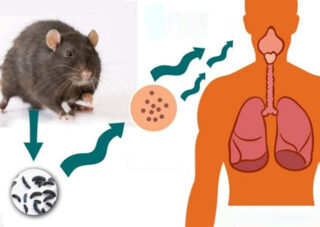What is Hantavirus and How Can It Be Prevented? Part 2

The Transmission of Hantavirus: How Does It Spread?
Understanding how hantavirus spreads is crucial, especially for those living in or near rural areas where rodent populations are prevalent. The primary mode of transmission from rodents to humans occurs through contact with infected rodent urine, droppings, or saliva. This can happen when people unknowingly inhale tiny particles containing the virus that become airborne as dust when these substances dry. The risk of airborne transmission is significant because activities such as sweeping a dusty barn or cleaning out an attic can disturb contaminated materials and release the virus into the air, making it easier to inhale. This makes it vital for individuals to exercise caution and employ preventive measures in environments likely to harbor rodent activity. Moreover, hantavirus is just one example among a broader category of rodent-borne diseases that can severely impact human health. These diseases underscore the importance of maintaining rigorous hygiene standards and controlling rodent populations in human habitats to minimize exposure risks effectively. By addressing these environmental factors and remaining informed about preventative strategies, we can significantly reduce the likelihood of encountering this potentially life-threatening virus.
Preventing Hantavirus: Steps You Can Take to Protect Yourself and Your Family
Preventing rodent infestations in homes is not just about maintaining a spotless environment; it plays a crucial role in safeguarding the health and well-being of your household. Rodents can bring with them a myriad of health risks, as they are known carriers of diseases that can easily spread to humans. To effectively avert these unwanted guests, it’s essential to adopt proactive cleaning practices. Regularly cleaning your home, particularly kitchens and storage areas where food residues may accumulate, is paramount. Use sealed containers for food storage to eliminate easy access for these pests. Moreover, understanding how to safely handle rodent droppings is vital in preventing potential exposure to harmful pathogens. When dealing with any evidence of rodents, such as droppings or nests, use disposable gloves and masks. Clean the area thoroughly with disinfectants rather than sweeping or vacuuming, which could disperse harmful particles into the air. Investing time in learning about effective pest control methods can yield significant benefits as well. Methods like sealing entry points around your home—such as gaps under doors or holes near utility lines—are simple yet highly effective strategies for keeping rodents out. Professional pest control services offer tailored solutions that ensure comprehensive protection and peace of mind by employing environmentally friendly techniques that minimize harm while maximizing efficacy. By taking these steps seriously and implementing them consistently, you create an environment that’s not only uninviting to rodents but also promotes a healthier living space for you and your family.




